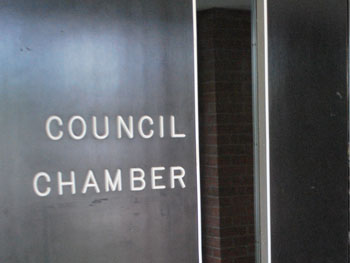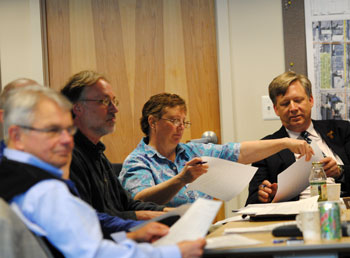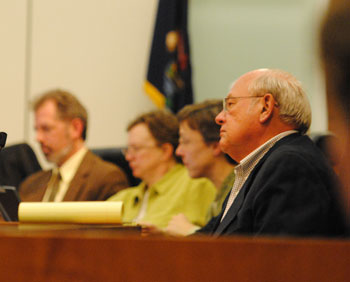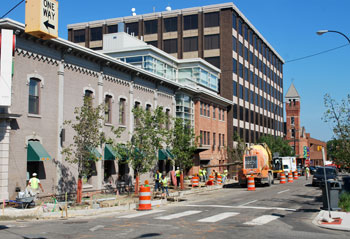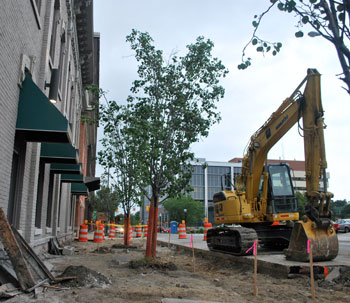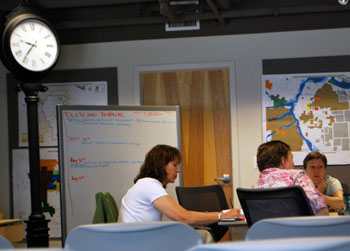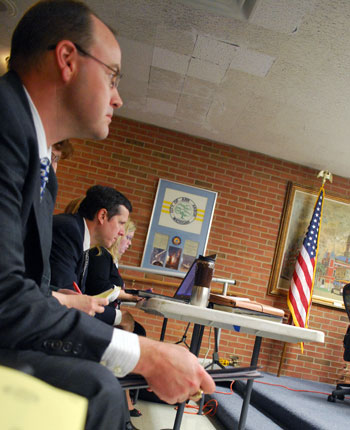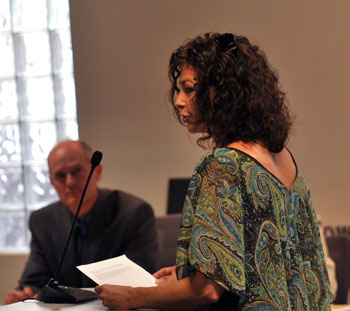July 1, 2013 Ann Arbor Council: Final
Land use is frequently a dominant theme of Ann Arbor city council meetings – and the July 1, 2013 meeting agenda fits that pattern.
The council will be giving final consideration to an ordinance change that expands the definition of “sidewalk” – to include any sidewalks the city has formally accepted for public use. The change has implications for owners of property adjacent to several “cross-lot paths” in the city – which are on the meeting agenda for acceptance for public use.
One consequence of the definition change is that those property owners will not be responsible for the repair of those paths – because the paths will be eligible for sidewalk millage repair funds. But the adjacent property owners would become responsible for clearing snow from the paths.
Also related to land use on the meeting agenda are rezoning requests associated with two proposed developments. Up for an initial vote is the rezoning from PUD (planned unit development) to D2 (downtown interface) for the parcels on North Main and Fourth Avenue where Kerrytown Place is planned. The 18-unit townhouse development is much smaller than The Gallery, for which the PUD zoning had originally been approved.
Also up for initial consideration is a rezoning request for 2271 S. State St., where the owner would like to be able to sell automobiles. The planning commission recommended denial of that request, in part because that land use was not felt to be consistent with the draft South State Street corridor plan. At its July 1 meeting, the council will also be asked to adopt that corridor plan.
The re-establishment of a citizens advisory committee on changes to R4C zoning in the city also appears on the meeting agenda. The origins of that committee date back to 2009. The reconstitution of the 12-member committee comes as the planning commission has recommended changes to R4C zoning that the council will be weighing – to decide if ordinance language should be drafted to reflect those changes.
Another committee with its origins in 2009 is set to be reconstituted at the council’s July 1 meeting, but it’s not related to land use. The council will be asked to re-establish a “mutually beneficial” committee to work through recommendations to changes in the city ordinance that regulates the Ann Arbor Downtown Development Authority’s tax increment finance (TIF) capture. The council has already given initial approval to some ordinance changes. Committee members will be working with their DDA counterparts with a two-month window of time – because the council has postponed final action on DDA ordinance changes until Sept. 3.
The council will also be asked to take an initial vote on a video privacy ordinance, having postponed that initial vote several times previously.
And finally, Ward 2 will not have a city council primary election a month from now, but it appears on the agenda in connection with polling places. The Precinct 2-8 polling location will be changed for all future elections to the First United Methodist Church on Green Road.
Details of other meeting agenda items are available on the city’s Legistar system. Readers can also follow the live meeting proceedings on Channel 16, streamed online by Community Television Network.
The Chronicle will be filing live updates from city council chambers during the meeting, published in this article “below the fold.” The meeting is scheduled to start at 7 p.m. [Full Story]




